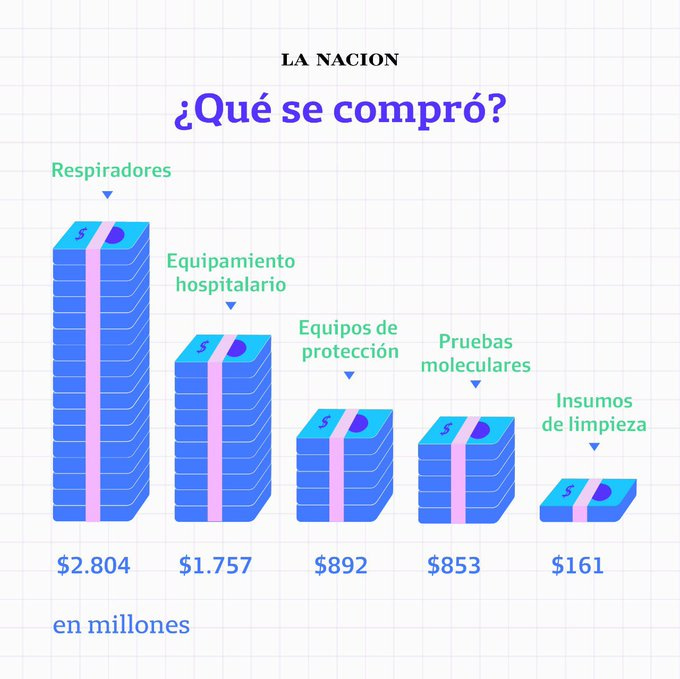Contracts, Data and Investigations – COVID-19: Edition 2020-07-10
Data-driven investigations into suppliers from Nigeria and Argentina, UK's emergency deals, collaboration between CSOs and journalists
This newsletter gathers stories covering the use and abuse of government contracts during the COVID-19 pandemic and beyond. If you like it, hit the heart button and share with your colleagues. Let us know about your stories and content. We, Sophie and Georg, would love to hear about them.
Over US$1.4 million worth of COVID-19 emergency contracts have been awarded to unaccredited companies, according to an investigation by Dataphyte’s Aderemi Ojekunle using data from Nigeria’s Open Contracting Portal NOCOPO.
In Argentina, Iván Ruiz and Bianca Pallaro find that domestic respirator manufacturers have been the big winners of the pandemic. The La Nación reporters resorted to three access to information requests and manual data analysis of official procurement platforms to build their database of all the health ministry’s spending, which they’ve made public and searchable. Meanwhile, their colleague Diego Cabot scrutinizes a $10 million plane purchase for Argentina’s air force in the midst of an economic crisis. In other questionable purchases, the Indian state of Maharashtra took a loan to pay salaries for police and doctors, as it bought luxury cars for senior officials.

In the UK, the Financial Times’ Tabby Kinder, Jim Pickard and Gill Plimmer dissect a £5.5 billion bill for protective equipment. Only £1.5 billion has been published officially and a large number of controversial contracts give urgency to calls for more transparency and high-quality data on the UK’s emergency deals. Following a legal challenge by the non-profit Good Law Project, the government claimed that one of these contracts, a £108 million PPE award with the firm PestFix, was issued ‘in error’ and was only for £32 million, but admitted the details of a number of other contracts with the company are yet to be disclosed.
In many countries, civil society and journalists have worked together to track emergency procurement. Transparency International Ukraine published a new online dashboard together with the digital news outlet Ukrayinska Pravda. Find out more and check out the step-by-step instructions (in Ukrainian).
Transparency International Georgia has analyzed red flags in the country’s emergency procurement, finding 1,495 tenders worth a total of US$ 182 million. Here’s the full report (in Georgian) and their searchable database Tender Monitor.
Proving nothing is sacred in the crisis response, an investigation by Cuestión Pública’s Iván Serrano, Ingrid Ramírez and Diana Salinas uncovers overpricing and other irregularities in public spending for cremation services for COVID-19victims in Colombia.
In the US, vendors accused of fraud received a total of more than 6,000 COVID-19 contracts worth nearly $500 million, an investigation by USA Today’s Josh Salman and Nick Penzenstadler reveals. ProPublica’s David McSwane identifies a $20 million contract with a company whose owner is being sued by another agency.
Writing for The Conversation in Australia, Sarah Kaine and Emmanuel Josserand examine the problems with outsourcing security services to private firms, after coronavirus outbreaks were linked to hotel quarantine breaches in the state of Victoria.
“My hope is that there is some method in the madness.”
Peter Smith, managing director, Procurement Excellence
For our recommendations, resources and tools, check our COVID-19 resource page.
This newsletter has been put together by the Open Contracting Partnership. Comments? Suggestions? Got a story to share? Write to Sophie or Georg at media@open-contracting.org. Thanks for reading.
Did a friend forward you this email? Click here to subscribe.



